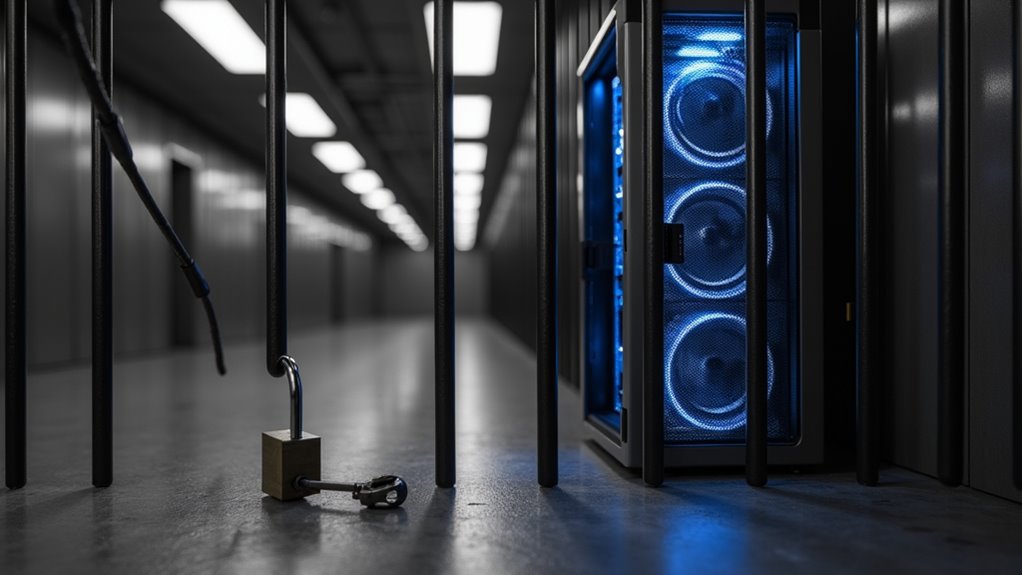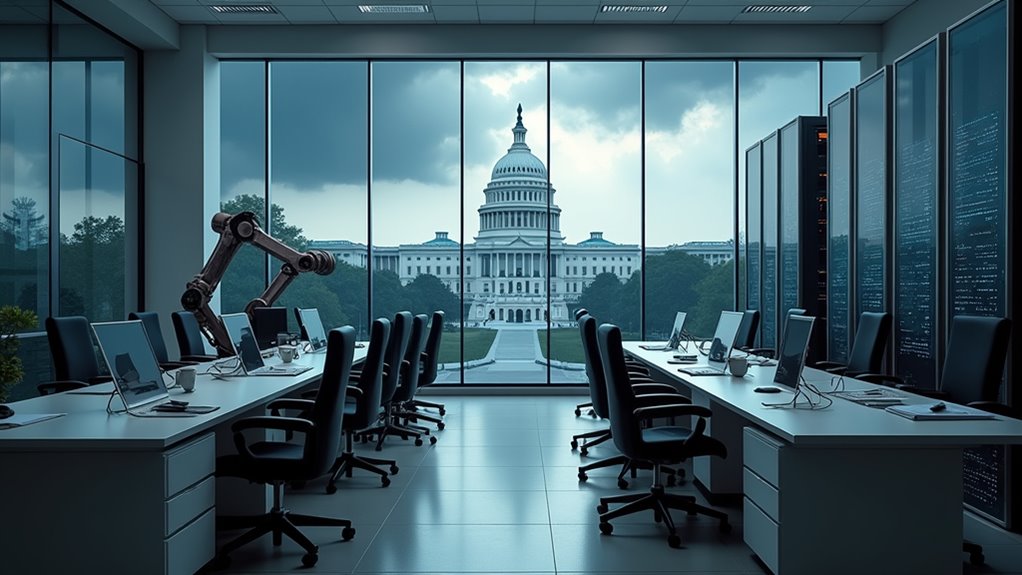Trump’s AI legislation has ignited backlash across the tech sector—even from expected allies like Elon Musk. The bill’s restrictions on AI models from countries like China and Russia, combined with vague blacklisting criteria, create a “patchwork nightmare” for innovation. Critics slam the legislation for weakening discrimination protections while simultaneously missing practical benefits. Perhaps most telling? The drafting process excluded actual AI experts. Think plumbers performing heart surgery—what could possibly go wrong?
While tech innovation has traditionally transcended political divides, President Trump’s sweeping AI legislation has sparked unprecedented backlash from across the tech sector. Even figures typically aligned with the administration have raised eyebrows at provisions that some say miss the forest for the trees in America’s AI ambitions.
The bill’s core restrictions target AI models from China, Russia, Iran, North Korea, Cuba, and Venezuela—plus the surprisingly specific inclusion of DeepSeek. State agencies must now delete accounts associated with these platforms, a move critics argue comes with more theatrical flourish than practical benefit. The House Select Committee on the CCP recently identified DeepSeek as a significant security threat sending U.S. data to China. Representatives and Attorneys General from more than 20 states have already pushed for nationwide bans on DeepSeek usage in government.
“It’s like banning specific hammers while claiming to build better houses,” one industry analyst noted. The tech community’s collective eye-roll stems from concerns that the legislation’s nationalistic approach fundamentally misunderstands how AI research actually advances—through global collaboration, not isolation.
The bill’s controversial “platforms of concern” language has particularly rattled innovation hubs. Kansas led a parade of 15+ states implementing similar bans, creating what industry groups call a “patchwork nightmare” for companies operating across state lines. The criteria for landing on this AI blacklist remain frustratingly vague. The inconsistent regulations mirror the regulatory whiplash seen across different regions that complicates compliance for AI companies.
Meanwhile, the legislation quietly revokes disparate-impact liability in civil rights enforcement—a detail that hasn’t escaped advocacy groups. The change effectively weakens discrimination protections in AI systems at precisely the moment they’re becoming more prevalent.
Research priorities outlined in the bill do sound promising on paper—focusing on fundamental algorithmic breakthroughs and next-generation AI hardware. But without international collaboration, experts warn these goals may remain theoretical rather than practical.
Perhaps most telling is the process itself—drafted with minimal input from the academic and private sectors actually building these systems. As one tech CEO put it: “You wouldn’t ask a plumber to perform heart surgery, so why exclude AI experts from AI legislation?” It’s a question the administration has yet to answer.









